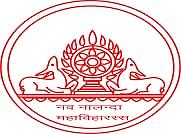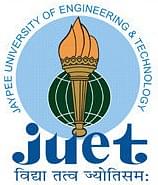Introduction about Ph. D Physiology
A Ph.D. in Physiology from top college is
a doctoral-level academic program designed to prepare students for advanced
research, teaching, and leadership roles in the field of physiology. Physiology
is the branch of biology that focuses on the study of how living organisms
function at the cellular, molecular, and systemic levels, including how organs
and organ systems interact to maintain homeostasis and respond to environmental
stimuli. A Ph.D. in Physiology provides students with in-depth knowledge of
physiological processes, research methodologies, and scientific inquiry,
enabling them to make significant contributions to the understanding of
biological systems and the development of new medical treatments, therapies,
and interventions.
Here's an
introduction to Ph.D. in Physiology:
Advanced Study of
Physiological Principles:
Ph.D. programs in Physiology offer advanced coursework in physiological
principles, mechanisms, and systems across various levels of organization,
including cellular physiology, molecular physiology, organ physiology, and
systems physiology. Students deepen their understanding of fundamental
physiological processes such as metabolism, homeostasis, neurophysiology,
cardiovascular physiology, respiratory physiology, renal physiology, endocrine
physiology, and reproductive physiology.
Research
Methodologies and Experimental Techniques: Ph.D. students receive rigorous training in research methodologies and
experimental techniques used in physiological research. They learn quantitative
and qualitative research methods, experimental design, data collection,
analysis, interpretation, and presentation. They gain proficiency in a wide
range of laboratory techniques, including cellular and molecular biology
techniques, electrophysiology, imaging techniques, biochemical assays,
histology, and animal experimentation.
Specialization and
Concentrations: Ph.D.
programs in Physiology allow students to specialize in specific areas of
interest within the field. Common areas of specialization may include
neurophysiology, cardiovascular physiology, respiratory physiology, renal
physiology, endocrine physiology, reproductive physiology, exercise physiology,
environmental physiology, comparative physiology, and integrative physiology.
Students tailor their coursework, research, and dissertation to their chosen
area of specialization, building expertise in a particular aspect of
physiological research or application.
Dissertation
Research and Writing: A
central component of Ph.D. programs in Physiology is the completion of a
doctoral dissertation. The dissertation is an original research project that
contributes new knowledge to the field of physiology. Students work closely
with faculty advisors or dissertation committees to develop research questions,
design methodologies, conduct experiments, analyze data, and disseminate
results through scholarly publications and presentations. The dissertation
demonstrates the student's ability to conduct independent research, critically
evaluate existing literature, and advance the understanding of physiological
processes.
Teaching and
Professional Development:
Ph.D. students in Physiology may have opportunities to gain teaching experience
and professional development. They may serve as teaching assistants, lead
discussions, design course materials, and deliver lectures in undergraduate or
graduate physiology courses. They may also participate in workshops, seminars,
and conferences to enhance their communication skills, presentation skills,
scientific writing skills, and knowledge of research ethics and responsible
conduct of research.
Interdisciplinary
Collaboration and Engagement:
Physiology is an interdisciplinary field that intersects with other scientific
disciplines such as biology, biochemistry, biophysics, pharmacology,
neuroscience, and medicine. Ph.D. students in Physiology have opportunities to
collaborate with researchers from other disciplines, participate in
interdisciplinary research projects, and contribute to interdisciplinary
initiatives aimed at addressing complex biological questions, understanding
disease mechanisms, and developing novel therapeutic strategies.
Career
Opportunities: Graduates of
Ph.D. programs in Physiology pursue diverse career paths in academia, research
institutions, healthcare organizations, pharmaceutical companies, biotechnology
firms, government agencies, and non-profit organizations. They work as
researchers, faculty members, research scientists, postdoctoral fellows,
science writers, scientific consultants, and industry professionals,
contributing to the advancement of knowledge in physiology, biomedical
research, and healthcare innovation.
Overall, a Ph.D. in
Physiology is a challenging and rewarding program that prepares graduates for
careers in scientific research, education, and healthcare. It offers
opportunities for advanced study, specialized training, interdisciplinary
collaboration, and professional development, enabling graduates to make
meaningful contributions to the understanding of physiological processes and
their applications in health and disease.
What is admission process for Ph. D Physiology?
The admission process 2024 for Ph.D. Physiology at best college program can vary depending on the institution offering the
program and its specific requirements. However, here is a general overview of
the typical admission process for Ph.D. programs in Physiology:
Research and
Identify Programs: Research
and identify universities, colleges, or institutions that offer Ph.D. programs
in Physiology. Consider factors such as faculty expertise, research
opportunities, program curriculum, facilities, location, and overall fit with
your academic and career goals.
Check Admission
Requirements: Review the
admission requirements for each Ph.D. in Physiology program you are interested
in applying to. Admission requirements may vary but commonly include:
A bachelor's or
master's degree in physiology, biology, biochemistry, biophysics, or a related
field from an accredited institution. Some programs may prefer applicants with
a master's degree, while others may accept applicants with a bachelor's degree
if they have relevant research experience or coursework in physiology.
Minimum GPA
requirements for previous academic coursework. The minimum GPA requirement may
vary by program but is typically around 3.0 on a 4.0 scale.
Graduate Record
Examination (GRE) scores. Some Ph.D. programs in Physiology may require
applicants to submit scores from the GRE General Test, which includes sections
on verbal reasoning, quantitative reasoning, and analytical writing. However,
this requirement may be waived or optional in some cases.
Letters of
recommendation from academic or professional references who can speak to the
applicant's academic abilities, research experience, and potential for success
in a Ph.D. program in Physiology. The number of letters required may vary by
program, but it is commonly around three letters.
Statement of
purpose or personal statement outlining the applicant's academic and research
interests, career goals, and reasons for pursuing a Ph.D. in Physiology. This
statement provides an opportunity for applicants to demonstrate their
motivation, passion, and fit for the program.
Resume or
curriculum vitae (CV) detailing the applicant's academic background, research
experience, work experience, publications, presentations, and relevant skills.
Writing samples or
research papers demonstrating the applicant's research abilities and interests
in physiological-related topics. These samples provide evidence of the
applicant's research experience, writing skills, and potential for conducting
original research in the field.
Contact Potential
Advisors: Reach out to
faculty members or potential advisors in the Ph.D. in Physiology programs you
are interested in to discuss your research interests and determine if there are
faculty members willing to mentor you and support your research goals.
Prepare Application
Materials: Gather all
required application materials, including transcripts, test scores, letters of
recommendation, statement of purpose, resume or CV, writing samples, and any
other documents specified by the program.
Submit Application: Complete and submit the application form
for each Ph.D. in Physiology program you are applying to. Follow the
application instructions provided by each institution, paying attention to
deadlines and submission requirements.
Pay Application
Fees: Pay any application
fees required by the institutions you are applying to. Some programs may offer
fee waivers for qualified applicants, so be sure to inquire about waiver
options if applicable.
Interview (if
required): Some Ph.D.
programs may require applicants to participate in interviews as part of the
selection process. Prepare for interviews by reviewing common interview
questions and highlighting your qualifications, research interests, and goals
related to physiology.
Submit Additional
Documentation (if required):
If requested by the program, submit any additional documentation or materials
required for the application process, such as samples of your academic or
research work.
Wait for Admission
Decision: After submitting
your application, wait for the admission decision from each institution.
Admission decisions are typically communicated via email, postal mail, or
through an online application portal.
Acceptance and
Enrolment: If you receive
an offer of admission, carefully review the terms and conditions of the offer.
If you decide to accept the offer, follow the instructions provided by the
institution to confirm your acceptance and complete the enrolment process,
which may include submitting enrolment deposits and registering for classes.
It's important to
start the application process early and carefully review the requirements and
deadlines for each Ph.D. in Physiology program you are considering. Be sure to
follow the instructions provided by each institution and reach out to admissions
offices or program coordinators if you have any questions or need clarification
on specific requirements. Additionally, establishing connections with potential
advisors and faculty members can strengthen your application and increase your
chances of admission to Ph.D. programs in Physiology.
What is eligibility for Ph. D Physiology ?
The eligibility criteria for Ph.D. in Physiology program can
vary depending on the institution offering the program and its specific
requirements. However, here are some common eligibility criteria that are
typically required for admission to Ph.D. programs in Physiology:
Educational
Background:
A bachelor's or
master's degree in physiology, biology, biochemistry, biophysics, or a related
field from an accredited institution is typically required for admission to
Ph.D. programs in Physiology. Some programs may prefer applicants with a
master's degree, while others may accept applicants with a bachelor's degree if
they have relevant research experience or coursework in physiology.
Minimum GPA:
Applicants are
usually required to have a minimum undergraduate or graduate GPA to be
considered for admission to Ph.D. programs in Physiology. The minimum GPA
requirement may vary by program, but it is typically around 3.0 on a 4.0 scale.
Graduate Record
Examination (GRE) Scores:
Some Ph.D. programs
in Physiology may require applicants to submit scores from the Graduate Record
Examination (GRE), which includes sections on verbal reasoning, quantitative
reasoning, and analytical writing. However, this requirement may be waived or optional
in some cases. Applicants should check the specific requirements of each
program they are interested in applying to determine whether GRE scores are
required and what minimum score thresholds, if any, apply.
Letters of
Recommendation:
Applicants are
typically required to submit letters of recommendation from academic or
professional references who can speak to the applicant's academic abilities,
research experience, and potential for success in a Ph.D. program in
Physiology. The number of letters required may vary by program, but it is
commonly around three letters.
Statement of
Purpose:
Applicants are
usually required to submit a statement of purpose or personal statement
outlining their academic and research interests, career goals, and reasons for
pursuing a Ph.D. in Physiology. This statement provides an opportunity for
applicants to demonstrate their motivation, passion, and fit for the program.
Resume or
Curriculum Vitae (CV):
Applicants are
often required to submit a resume or curriculum vitae (CV) detailing their
academic background, research experience, work experience, publications,
presentations, and relevant skills. This document provides a comprehensive
overview of the applicant's qualifications and accomplishments.
Writing Samples or
Research Papers:
Some Ph.D. programs
in Physiology may require applicants to submit writing samples or research
papers demonstrating their research abilities and interests in
physiological-related topics. These samples provide evidence of the applicant's
research experience, writing skills, and potential for conducting original
research in the field.
It's important to
note that the specific eligibility criteria for Ph.D. programs in Physiology
may vary from one institution to another, so it's essential to carefully review
the admission requirements of each program you are interested in applying to. Additionally,
meeting the minimum eligibility criteria does not guarantee admission to a
Ph.D. program, as admission decisions are based on a holistic review of the
applicant's qualifications, accomplishments, and fit with the program.
What is syllabus of Ph. D Physiology?
The syllabus for Ph.D. in Physiology at best college program can vary
significantly depending on the specific focus areas, research interests, and
faculty expertise of the institution offering the program. However, here is a
general overview of the typical components of a Ph.D. in Physiology syllabus:
§ Core Courses in Physiology:
§ Advanced topics in cellular physiology:
In-depth study of cellular processes, including membrane transport, signal
transduction, cellular metabolism, and cell-cell communication.
§ Advanced topics in molecular physiology:
Examination of molecular mechanisms underlying physiological processes,
including gene expression, protein synthesis, enzyme kinetics, and molecular
interactions.
§ Advanced topics in organ physiology: Study
of the structure, function, and regulation of major organ systems, including
the cardiovascular system, respiratory system, renal system, endocrine system,
and nervous system.
§ Systems physiology: Integration of
physiological processes at the organismal level, including homeostasis,
regulatory mechanisms, and physiological responses to environmental stimuli.
§ Research Methodologies and Experimental
Techniques:
§ Research design and methodology: Training in
research methodologies and experimental techniques used in physiological
research, including quantitative and qualitative approaches, experimental
design, data collection, analysis, interpretation, and presentation.
§ Laboratory techniques: Hands-on experience
with a variety of laboratory techniques commonly used in physiological
research, including cellular and molecular biology techniques,
electrophysiology, imaging techniques, biochemical assays, histology, and
animal experimentation.
§ Statistical analysis: Application of
statistical methods and software tools for analyzing experimental data,
including descriptive statistics, inferential statistics, regression analysis,
analysis of variance (ANOVA), and multivariate analysis.
§ Specialization Courses:
§ Elective courses: Specialized courses in
specific areas of interest within physiology, tailored to the student's
research interests, career goals, and chosen area of specialization. Topics may
include neurophysiology, cardiovascular physiology, respiratory physiology,
renal physiology, endocrine physiology, reproductive physiology, exercise
physiology, environmental physiology, comparative physiology, and integrative
physiology.
§ Directed readings or independent study:
Individualized study under the supervision of a faculty advisor, focusing on
advanced topics, specialized research methods, or specific research questions
relevant to the student's dissertation or research interests.
§ Seminar Series and Journal Clubs:
§ Seminar series: Attendance and participation
in seminars, workshops, and colloquia featuring presentations by faculty
members, visiting scholars, and fellow students on current research topics,
breakthroughs, and controversies in physiology.
§ Journal clubs: Participation in journal
clubs focused on critically evaluating and discussing recent research articles
and publications in physiology-related journals. Students present and lead
discussions on assigned papers, fostering critical thinking, scientific
communication, and collaboration.
§ Dissertation Research and Writing:
§ Dissertation proposal development:
Development of a research proposal outlining the research questions,
objectives, theoretical framework, research design, methods, data collection
plan, and significance of the doctoral dissertation. Supervised by a faculty
advisor or dissertation committee.
§ Dissertation research: Conducting original
research, data collection, analysis, interpretation, and writing of the
doctoral dissertation. The dissertation should make a significant contribution
to the field of physiology and demonstrate the student's ability to conduct
independent research, engage with existing literature, and advance knowledge in
their chosen area of study.
§ Teaching and Professional Development:
§ Teaching practicum: Teaching assistantship
or supervised teaching experiences in undergraduate or graduate physiology
courses. Students gain experience in course design, lesson planning, classroom
management, assessment strategies, and student engagement.
§ Professional development workshops:
Participation in workshops, seminars, and conferences focused on scientific
communication, presentation skills, grant writing, research ethics, and career
development. Students develop skills and strategies for successful academic and
research careers in physiology.
§ It's important to note that the specific syllabus for a Ph.D. in Physiology program may vary from one institution to another, and students are encouraged to review the curriculum and course offerings of individual programs to ensure alignment with their academic and research interests. Additionally, Ph.D. students in Physiology typically have flexibility to tailor their coursework, research activities, and dissertation to their specific research interests and career goals with guidance from their faculty advisors or dissertation committees.












